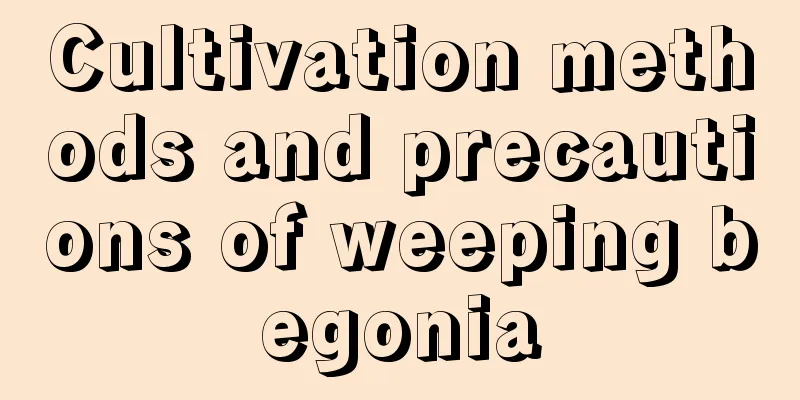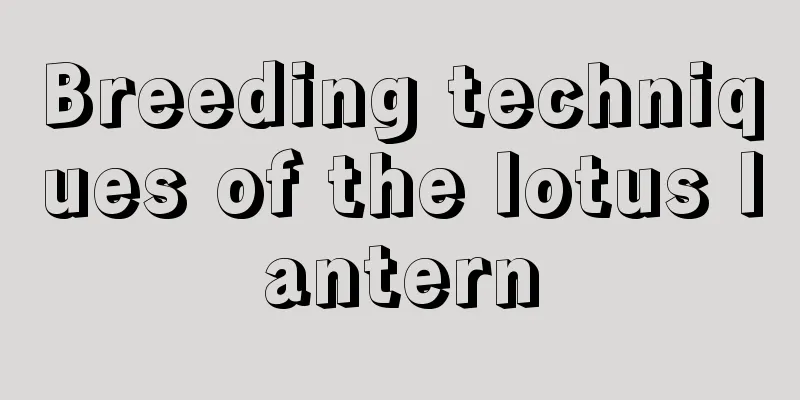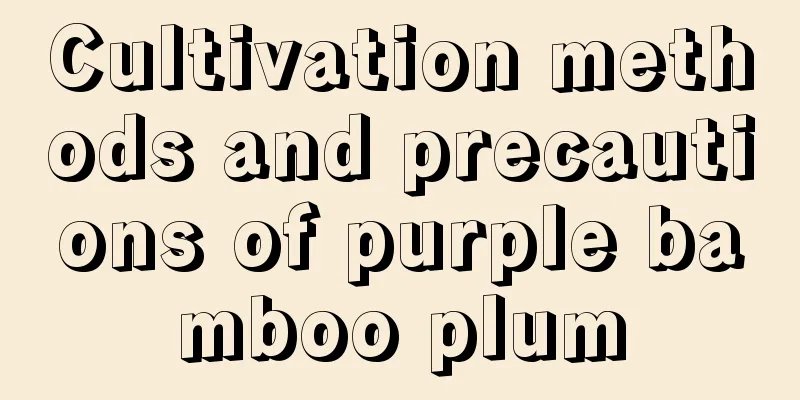Cultivation methods and precautions of weeping begonia

Cultivation method of weeping begoniaPot soil selectionWhen potting weeping crabapples, you can choose a culture soil that is mixed in the ratio of 4 parts garden soil, 1 part river sand, 4 parts leaf mold, and 1 part organic fertilizer. You can choose a more rustic flowerpot to create a beautiful weeping crabapple bonsai. Light and temperatureWeeping crabapple grows best in a sunny and warm environment. The suitable temperature for growth is between 15℃~28℃. It can tolerate temperatures as low as -5℃ in winter, so you don’t need to put the weeping begonia indoors to keep it warm, but instead bury the flowerpot in the soil. When the temperature is high and the sun is strong in summer, you need to provide proper shade and you can also cool down by spraying water. Water and fertilizer managementWeeping begonia needs sufficient water during the growing season, but water should not accumulate in the pot. You can water more often in spring and summer. In summer, you can water once every morning and evening when the temperature is high. During rainy seasons, be careful not to allow water to accumulate in the pot, drain the water in time to prevent root rot, and reduce watering in autumn. During the growing season, weeping crabapple should be fertilized with thin fertilizer water once a month. Before flowering, apply some phosphorus fertilizer to promote flowering. Stop fertilizing after the leaves fall in autumn. Precautions for the cultivation of weeping begoniaprunePruning the branches of weeping crabapple can promote branching, control the plant shape and make it bloom more. It is best to prune after flowering or during the dormant period. RepottingThe weeping crabapple can be repotted, repotted, and root and branch pruned in early spring or late autumn, and some base fertilizer should be applied when potting. Pests and diseasesCommon pests of weeping crabapple include wax scale, apple aphid, longhorn beetle and red spider, and the main disease is rust. |
<<: Cultivation methods and precautions of moth and butterfly flower
>>: Cultivation methods and precautions of silk flower
Recommend
How long is the growth cycle of sugarcane?
Sugarcane growth cycle The longest growth cycle o...
How to grow green radish hydroponically to make it more vigorous? What should you pay attention to if you want to grow it to overflow the pot?
The green ivy is full of vitality and is a common...
When is the best month to plant peony seeds?
When to plant peony seeds Peony seeds are general...
What rootstock is used for avocado grafting? How to graft avocado trees?
1. Rootstock Selection Avocado is a deciduous tre...
How to prune miniature roses
Pruning methods First of all, during the flowerin...
What kind of flowerpot looks good for Golden Edge Tiger Pilan
What flowerpot is suitable for Golden Edge Tiger ...
In the hot summer with a temperature of 40℃, if you don’t pay attention to these 4 points, the flowers will die and only the pots will be left!
Watering No matter what season it is, watering is...
When and how to prune bougainvillea
Bougainvillea is loved for its bright colors and ...
How to grow Croton in winter and what to do if leaves fall off
1. How to grow Croton in winter 1. Insulation tre...
How long does it take for jasmine cuttings to take root?
1. How long does it take to take root? It usually...
How to plant Jade Dragon Grass
1. Choose the soil It is best to use soil with st...
Sophora japonica disease prevention and control methods
Sophora japonica leaf scorch Symptom Analysis Sco...
When to plant chayote
1. Which month to plant? The best time to plant c...
What are the varieties of Allium
Purple Sensation Purple Sensation, as the name su...
The difference between yellow eggplant and thorny eggplant
1. Difference of blades The leaves of Solanum eri...









